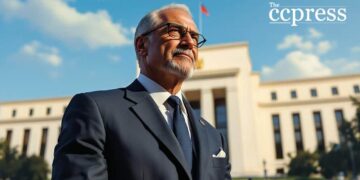- Kazuo Ueda discusses interest rate adjustments amid US tariffs.
- BOJ maintains short-term rate at 0.5%.
- Tariffs might diminish Japan’s economic stability and growth.

The potential interest rate change by the Bank of Japan reflects the impact of US tariffs on global and domestic trade, signaling economic caution.
Kazuo Ueda, as Governor of the Bank of Japan, highlighted the potential impact of US tariffs on Japan’s trade. Ueda expressed that global trade uncertainties might require a reassessment of Japan’s economic strategies. He stated:
“Depending on the size and area of the tariffs, it’s possible they will have a large impact on trade activities among nations… uncertainties are high, so we will be closely watching developments of policies to grasp their economic impacts more precisely.”
Shigeru Ishiba, Prime Minister of Japan, also commented on the potential economic impact, voicing concerns about tariffs. Ishiba plans to communicate the adverse effects of US tariffs on Japan to mitigate risks.
The potential shift in BOJ interest rates could influence global financial markets, adjusting investor strategies. Business confidence remains stable despite potential trade disruptions, as shown in the latest Tankan survey.
Trade tensions have historically impacted global market dynamics, leading to potential financial and regulatory changes. Investors may see increased volatility in traditional and digital markets, as uncertainty prompts asset reallocation and strategic adjustments.
The combination of potential interest rate changes and tariff uncertainties indicates a period of financial evaluation for Japan’s policymakers. They might need to implement measures that stabilize economic growth amid these emerging trade challenges.
The situation presents both risks and opportunities for market participants. It underscores the interconnectedness of global economic policies and highlights ongoing challenges in global trade frameworks.


























